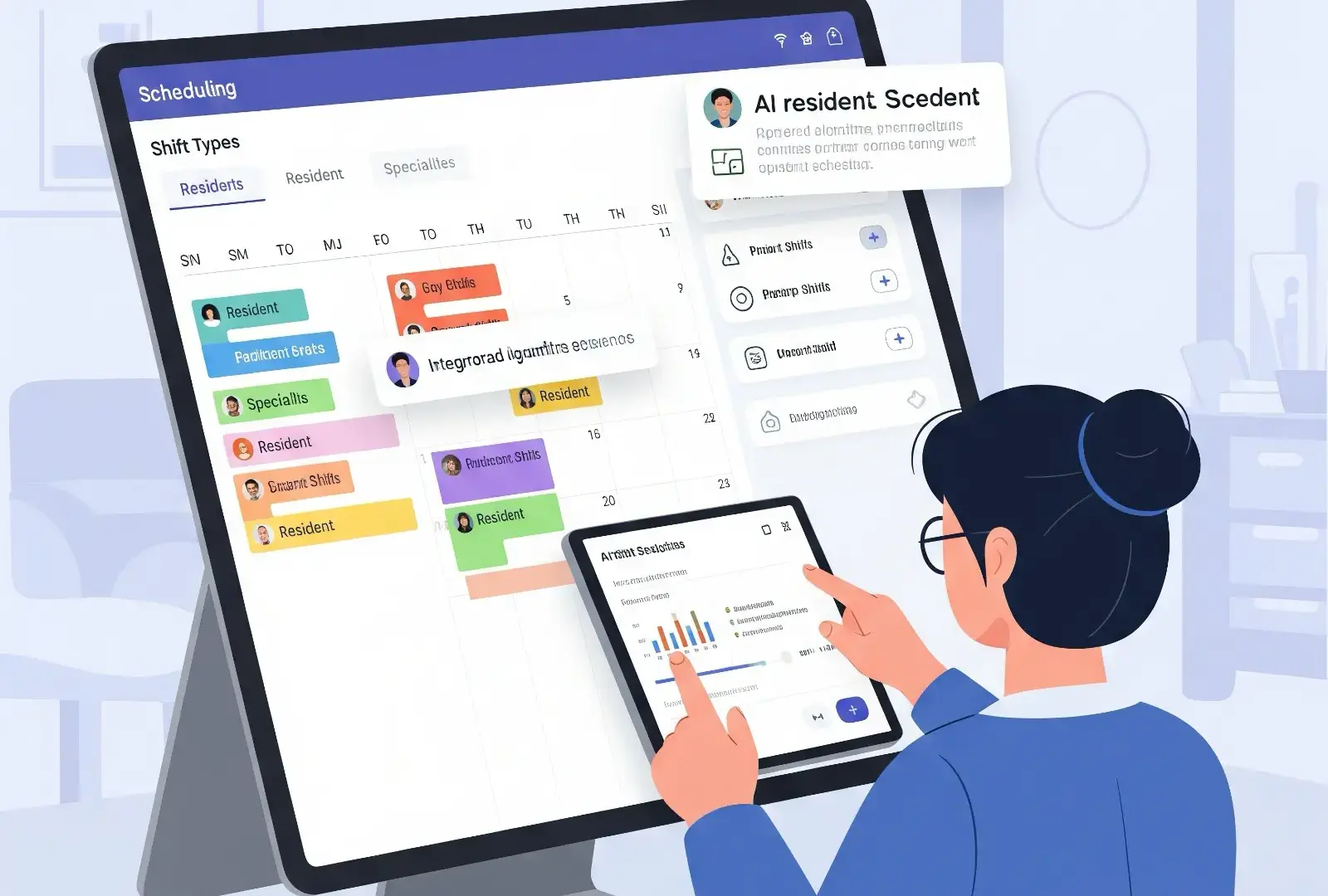Why Residents Prefer AI Scheduling Over Traditional Methods: Faster, Fairer & Smarter
Published on: February 11, 2026

Discover why medical residents are switching to AI scheduling tools. Learn how AI improves fairness, reduces burnout, and streamlines shift planning in residency programs.
Why Residents Prefer AI Scheduling Over Traditional Methods
Medical residency programs are notorious for their complex schedules, long hours, and unpredictable shifts. Traditional scheduling methods—often based on spreadsheets, whiteboards, or manual coordination—have long been a source of frustration for residents and program administrators alike. Enter AI-powered scheduling, a game-changer that's rapidly gaining traction in healthcare.
1. Fairness and Transparency
One of the most significant advantages of AI scheduling is fairness. Unlike manual scheduling, which can unintentionally favor some residents over others, AI systems analyze historical data, preferences, and shift distribution rules to generate equitable schedules for everyone. This reduces internal conflict and helps ensure that all residents get fair treatment when it comes to night shifts, weekends, and holidays.
2. Time-Saving and Efficiency
Manual scheduling can take hours or even days to complete, especially in larger programs. AI scheduling platforms like Shiftly.cloud dramatically reduce that time by automating the entire process. With a few clicks, program directors can generate optimized schedules, manage changes, and even accommodate last-minute emergencies.
3. Customization and Flexibility
AI scheduling tools allow for individual preferences and constraints to be factored into the equation. Whether a resident needs certain days off, has specific clinical rotations, or prefers certain shift patterns, AI can adapt in real-time—something that’s nearly impossible with traditional methods.
4. Reduced Burnout
Resident burnout is a serious issue, often exacerbated by poor scheduling. AI-driven solutions are designed to balance workloads, reduce consecutive night shifts, and ensure adequate rest periods. This helps improve resident well-being and, ultimately, patient care.
5. Real-Time Updates and Notifications
AI scheduling systems offer real-time updates, mobile access, and automated notifications. This eliminates confusion, ensures everyone is on the same page, and makes it easy to swap or trade shifts without lengthy email chains or verbal agreements.
6. Integration With Other Tools
Modern AI scheduling platforms often integrate with hospital HR systems, time tracking tools, and communication platforms, streamlining administrative workflows and reducing human error.
Conclusion
AI scheduling isn’t just a trend—it’s a revolution in how residency programs manage time, people, and patient care. As more residents experience the benefits of automation, fairness, and customization, it’s clear why the old way of doing things is becoming a thing of the past.
If your residency program still relies on manual methods, it’s time to embrace the future with AI scheduling platforms like Shiftly.cloud—because your residents (and your patients) deserve better.
Let's make scheduling effortless for medical residents everywhere! 🚀